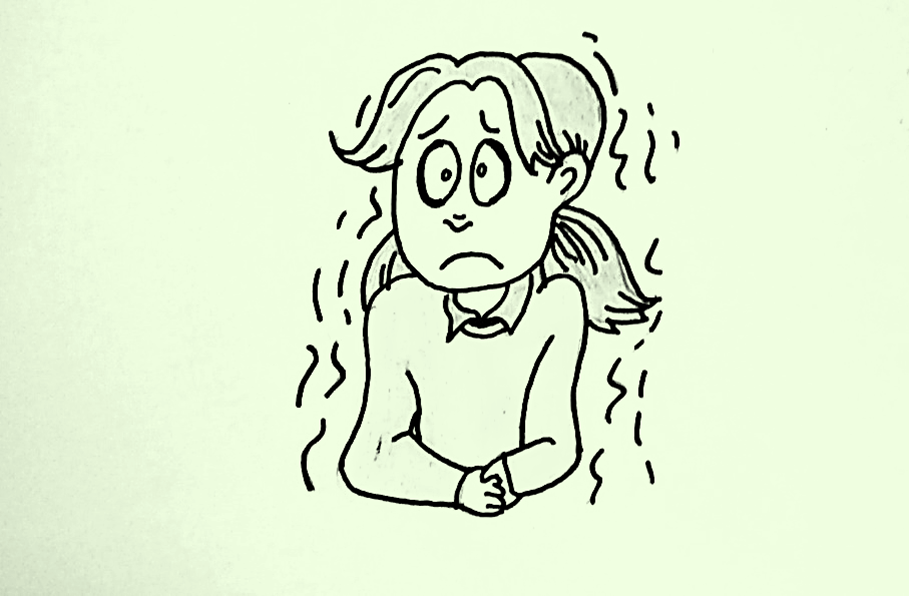By Sarah Dalton, SciTech Subeditor
The COVID-19 pandemic has affected us all differently, with some finding lockdown a break from the stresses of everyday life, whilst others have experienced a strain on their wellbeing. However, a new Bristol University study into mental health and COVID-19 has found a significant increase in the anxiety of young people during the pandemic.
This novel study used data from Bristol’s ongoing ‘Children of the 90s’ questionnaires which found that young people (aged 27-29 years) reported higher anxiety levels in the early pandemic and first lockdown, an increase from 13 per cent to 24 per cent.
These results were also significantly higher than their parents. The findings from this study have therefore been viewed as incredibly valuable, being used by Public Health England to inform the government’s understanding of how COVID-19 can impact mental health, and influence policy on a national scale.
Evidence suggests this is not going to be a short-term issue and that mental health support and interventions are urgently required
Children of the 90s recruited 14,500 pregnant mothers in 1991 and has over time collected almost three decades worth of detailed health and lifestyle self-report data. The ongoing study sends out regular questionnaires and testing to these mothers and their babies, who will soon be turning 30.
In this new study, Bristol researchers compared the previous years of data of participants with findings from their two 2020 COVID-19 questionnaires. Although the results focused on anxiety levels and there was no evidence to suggest that levels of depression had increased overall, certain groups within the study were found to be at greater risk of increased anxiety and/or depression during the pandemic.
These vulnerable groups were women, those with pre-existing mental or physical health conditions, those living alone, those self-isolating due to COVID-19, and those who had experienced recent financial issues. No evidence of elevated risk of anxiety was found in key workers or healthcare workers.
All of these vulnerable groups were observed as being at an increased risk in both the younger and older generations of the sample group. These results were then additionally echoed in the longitudinal study ‘Generation Scotland’ which studied 4000 Scottish individuals. Although Bristol based research, this therefore implies that the effects of the coronavirus pandemic on mental health is not just specific to the South-West.
New research, using Generation Scotland and @CO90s volunteer data, has found that young people are more likely to have poor #MentalHealth during COVID-19. This supports calls for greater mental health support.
— Generation Scotland (@genscot) November 25, 2020
Read our article at: https://t.co/ADHHzPjdaK#Depression #Anxiety pic.twitter.com/PDfgRaysGY
So what does this mean for Bristol students? The study found that anxiety levels among young people remained high even after restrictions from the first national lockdown eased in June. Therefore, researchers predict a similar situation to happen this winter. This means that students may be some of the most at risk of increased anxiety and poor mental health.
Commenting on the effects of the pandemic on students, an anonymous second year who self-isolated for two weeks has stated that: ‘My health declined because I couldn’t get fresh air properly – the lack of sunlight and proper exercise made me irritable and tired all the time.’
The added stresses of online learning with minimal contact and increasing deadlines this December, means that this winter may be one of the toughest yet for students’ mental health.
'You are not alone': Bristol students march for mental health
Coping with anxiety: what has helped me?
Researchers have placed particular emphasis on the importance of protecting mental health services (particularly those for young adults) at this time. Dr Alex Kwong, co-lead researcher and Senior Research Associate in Psychiatric Genetic Epidemiology at the University of Bristol, commented that: ‘Evidence suggests this is not going to be a short-term issue.’ Kwong added that ‘mental health support and interventions are urgently required to reduce some of the mental health inequalities that have emerged.’
Featured Image: Epigram / Sarah Dalton
Has your mental health been negatively impacted by the coronavirus pandemic?
The full list of Bristol's support services are available here.









